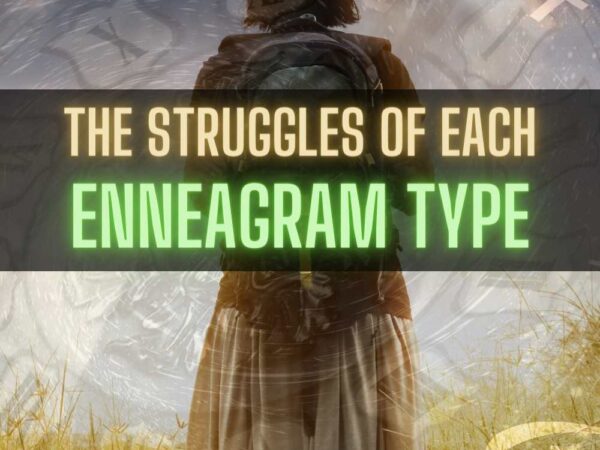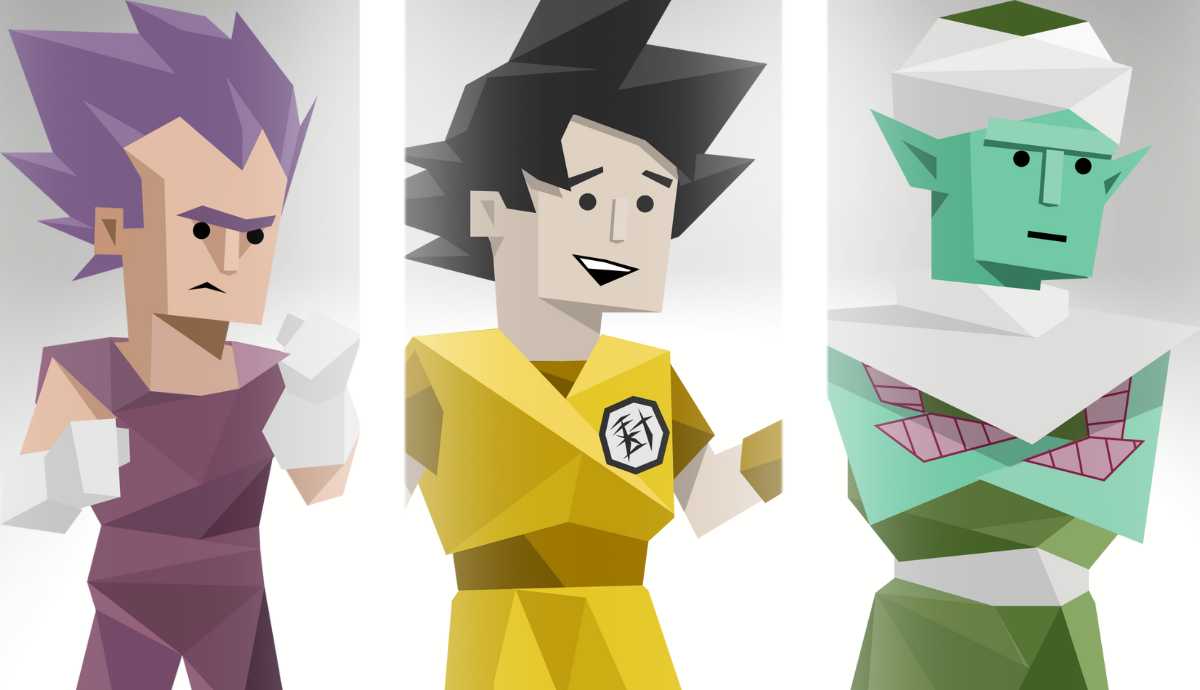The Enneagram is a useful tool for which to understand and conceptualize personality. Like the Myers-Briggs Type Indicator, it provides a framework and language for discussing and making sense of the core perspectives and values we hold. Within each type however, there are both a number of positives and negatives. In this post, we will highlight some of the challenges and weak points associated with each Enneagram type.
Challenges for Type 1: The Reformer
These personality types move through the world with a sense of purpose. They tend to see things as black or white in an attempt to make perfect sense of situations and discount the murky middle ground. The pitfalls of this make them prone to judging others and putting them into boxes of their own design.
Given their predilection for clear-cut answers and reason, Reformers can become out of touch with their emotions. This can become a great challenge as they navigate relationships.
That doesn’t suggest they don’t feel any emotion. They can be prone to a strong sense of anxiety or guilt during downtime. They may tend to see relaxation or enjoyment as taking away from time that can be spent doing something productive.
They are often self-controlled but can take it too far to the point of perfectionism. Seeking perfection can also often lead to feelings of inadequacy in hard work if it doesn’t hit a lofty mark.
When it comes to relationships, this is especially troublesome territory. If things are not perfect, clearly fitting into the concept of “right”, Reformers may be more inclined to call the whole thing off.
Reformers need to learn grace with themselves and understand the cycle of work and rest. Even if not in equal portions, rest should be allotted and allowed when there is a job well done. This offers a chance to recharge momentum for the next phase or project.
Challenges for Type 2: The Helper
The name of type Twos says it all in terms of valuable traits. Helpers are generous, warm-hearted, and sentimental.
The flip side of these positive traits is that Twos can become obsessive people-pleasers, driven predominantly by their desire to feel loved. In doing things for others, they may forget to do for themselves. As such, they may become both needy and strive to get what they want by becoming over-involved with the lives of those they hope to serve.
In weak moments, Twos may turn to resentment or anger for not getting in return the same show of support they provide. The heavy emotional needs of a Helper can transform into a great challenge to move through life without constant validation and appreciation.
Twos should be acutely aware of balancing relationships, and the idea of only pouring themselves into something else when they have enough in reserve to serve their own needs.
Challenges for Type 3: The Achiever/Motivator
A wonderful thing about Type 3 Achievers is that they seek to excel and can naturally adapt.
With an “eye on the prize” mentality, Achievers can be prone to losing their true sense of self. In chasing a set goal, they forget to search for their true desires and qualities along the way.
As their true desires become blurred, so does their sense of self. Achievers can sometimes become obsessed with their outward face and the opinions it garners from others. This then reveals that the Achiever is less concerned with doing great work, but concerned with doing work that will garner praise.
By not serving their deepest sense of self and desire, Threes can often become lost. They quiet their emotions for the sake of the performance (you see this often in celebrities who “fall from grace” or “washed up”–they are first praised and later become obsolete.)
Their fear of being a “nobody” drives them to be the best, but this is a challenge for them because they allow the benchmark for success to be set by society as opposed to their own true beliefs. Negatively, this can be seen as performative–and indeed Threes enjoy the praise of a performance. This distances them from a sense of self and can manifest further into a talent for deceit with an end goal to always be recognized.
If this recognition evades them, it can turn them into vindictive destroyers, keen on tearing others down to have an even playing field.
The key for Threes to be healthy is to use the competitive spirit to work on oneself, but be aware of when it becomes overwork and develop patience that the efforts will pay off.
Challenges for Type 4: The Individualist
The Individualist thrives on creativity and uniqueness and will strive to maintain it or redevelop themselves accordingly.
The core of their identity is based predominantly on the fact that they are different from others. When Fours encounter people who are like them, they may have resentment for this “sameness” and try to change themselves to reinstate their individualism. This chameleon behavior can be beneficial, but also problematic.
They search for the deep, true qualities of human nature and, as such, change depending on the stages and moods in their lives. In their quest to understand the truth of their existence, Fours often find that they have a hole in themselves that is constantly trying to be filled.
They may also have trouble sticking to a social persona that they’re comfortable sharing with others as they continuously reinvent themselves.
The struggle in social settings is amplified internally. Fours don’t shy away from the darkness in life, but as such can be prone to melancholy and moodiness. When it comes to work, a bad play can have a lasting ripple effect that Fours find hard to escape. Because of their predilection for feeling unique, the Individualist may also develop feelings of inadequacy. “Imposter Syndrome” can be a struggle for Fours.
In relationships, Fours may also become impatient more quickly, hoping to achieve an idealized romanticism that ultimately sours the present truths. Strangely, as much as Fours wish to seek creativity and reinvention, they can also become obsessive and dwell on the past.
A sense of newness or an uplift in mood can highlight their weakness for self-indulgence. This indulgence can present many struggles in life if they get too irresponsible with spending or develop habits or addictions.
Fours will find that creative outlets are some of their best tools for wading through emotions and realizing a form of themselves that feels true.
Challenges for Type 5: The Investigator
Preoccupied with thoughts, Fives are the inventors, philosophers, and visionaries.
An exaggerated archetype of Fives might be a “Mad Scientist.” Fives can become so obsessed with their ideas that they become detached from reality. What they hate most of all is intrusion–someone interrupting their flow of thoughts.
This detachment can become a struggle as they isolate themselves further. Because of this detachment from the outside world, they may also become obsessed with building tactics to protect themselves from threats.
One of these protections is the safeguarding of themselves. They can make loyal friends but the friendship is one-sided. They characteristically avoid the vulnerability to share.
The distance in relationships is all-encompassing. They tend to shy away from making definitive decisions on other people and watch life from an arm’s length. In essence, relationships prove to be a significant challenge for Fives.
This may also be the case with their own goals or ideas. Obsessed with analyzation, they can sometimes end up in a vicious cycle of inaction.
Investigators are best when they nurture their curiosity in a way that welcomes like-minded people into their visions.
Challenges for Type 6: The Loyalist
For loyalists, security and trust are of utmost importance. They will see things through to the end if they believe in it, whether it is an institution, idea, or relationship. This becomes a struggle when a Loyalist’s belief is challenged. They struggle to accept change when it becomes a threat to the sanctity and security of their preconceived ideas.
To protect what’s familiar, Sixes may become rebellious.
Ultimately, Loyalists find security externally, and this presents a great challenge for them in terms of their self-confidence and intuition. They can be in a consistent struggle with self-doubt and worry. Because they have such trouble coming to conclusions on their own, decision-making is one of the greatest challenges for Sixes.
The Enneagram Institute calls Sixes “a bundle of opposites.” Indeed, with security as their core, their other actions and morals will ebb and flow to fit into the mold that they need to feel safe.
It is true of Sixes that it’s hard to get into their good graces, but once you are they will defend you to the end. Likewise, once you fully lose their trust it can be impossible to regain.
Although driven by protection, Sixes can also find that the most turbulent and troublesome space for them is internal. The goal for Sixes who are struggling should be to develop the main belief that they are courageous enough to face any uncertainty in life.
Challenges for Type 7: The Enthusiast
Sevens are the “kids in the candy store” of life.
The unwaveringly positive outlook can sometimes leave the Enthusiast unbalanced with reality. Because they tend only to seek out the good, they can become easily scattered, and run into the problem of “never finishing what they start.”
A disciplined Seven can go on to do great things, but discipline is certainly a place of struggle for the Enthusiast. They can be fast learners, but with swift uptake, they can lose out on the reward of working to achieve something. This may pose a challenge for them in actually seeing something through, because they may not take the time to see the value in the discomfort.
For the overenthusiastic Seven, it may be difficult finding where to put their focus. A great weakness of the Enthusiast is that they are out of touch with inner guidance. Consistently distracted by the excitement they seek, they rarely take time to process their emotions or discover what they truly want.
Enthusiasts struggle so much with their guidance because they may not believe at all that they will find something right for them.
Enthusiasts are prime for “FOMO”–they never want to know they missed out on a good time. This ceaseless curiosity has the potential to be the greatest weakness for the Enthusiast that can unfold into the ultimate challenges. By not being consistent or decisive, Enthusiasts may become so comfortable with spontaneity that they lose all structure and security in their lives.
To overcome this weakness, Enthusiasts should seek to balance their upbeat attitude with learning to find excitement and fulfillment in simple things. A well-adjusted Seven will believe that the mere act of living is remarkable.
Challenges for Type 8: The Challenger
The Rugged of the bunch, Challengers are often hard as a rock and have trouble admitting vulnerability.
Ironically, their great weakness is their impenetrable ego. Whereas the Loyalist may seek protection in life, the Challenger will seek the protection of self. They very much value being in control of themselves, and in social situations, they may strive to establish themselves as the alpha.
Independence is important, so they understand that they are in charge of their protection. Their fear, then, boils down to physical harm.
“Steely” is a good way to describe Eights. They intend to wrangle their inner emotions and can become distant or closed-off from those who are important or close to them. A surprising source of vulnerability for Eights is when they perceive their hard work and strength as unappreciated.
With an ego built as a fortress around their emotions, Eights can struggle in social settings with new people if they are faced with any question or slight to their strength. Challengers are not those who shy away from fights and struggle with being easily provoked.
They resist weakness and are motivated by self-reliance. Enormous willpower and vitality. Do not like to be controlled.
Well-adjusted Eights will believe in their strength without having to prove it, and use strength for goodness and take the heat for those who need it.
Challenges for Type 9: The Peacemaker
Peace within and peace without–such is the goal with Nines. The Peacemakers of the bunch, creating harmony is the key motivator for Nines.
With sights set on serenity, Peacemakers may run into trouble when they have to confront a difficult situation. While they are easygoing, this can become a problem if it devolves into complacency.
Peacemakers never want to be the problem. They turn both inward and to spirituality to guide them through life. In doing so, Nines might also be prone to avoidance of problems or tension in life by suspending themselves in a higher realm.
This transcendentalism may often lead them down a path of lost identity. If they are too in tune with their higher self, they may begin to isolate themselves. Also, this enlightenment may become a problem for Nines should they perceive those around them as flawed. Often out of touch with their instinctual energy, they might lack a sense of identity.
Their basic fear being loss or separation, they may struggle with moving ahead independently or working alone.
At their best, Peacemakers can be diplomats who understand all arguments within conflict and seek a sensible resolution.
related posts:
Want to know your astrology placements? You can generate your astrology chart here with our free birth chart generator tool.
- Enneagram Types Explained: A Brief Look
- The Enneagram Singapore
- 7 Misunderstood Bad Guys Who Are (Kind of) Right
- 7 Of The Most Expensive Insurance Payouts Ever
- 6 Best Paying Careers for ENFJ
Pin this!

- The 8 Cognitive Functions Explained - May 17, 2025
- American Presidents Ranked By Zodiac Sign - January 20, 2025
- ESTP and ESFP in love: 6 Dynamics of Their Relationship - September 4, 2024





